-
Disasters Have Changed. So Must Our Response.
› As disasters have changed over the years, so must the personnel who manage these crises.
As disasters have changed over the years, so must the personnel who manage these crises.In 1932, sociologist Lowell Carr first described a predictable pattern of how disasters impact society. Refined over the decades by many researchers, the “disaster cycle” includes four phases: prevention, preparedness, response, recovery and rehabilitation.
This disaster cycle helped define the way societies respond to each disaster. Today, highly trained emergency personnel using many research, management, and epidemiological skills have helped improve survival and health outcomes after disasters. “Disaster medicine” now defines a sub-specialty for highly skilled professional health specialists. However, their many activities and skill sets primarily focus on only the response phase of the initial disaster cycle.
-
Emulating Botswana’s Approach to Reproductive Health Services Could Speed Development in the Sahel
›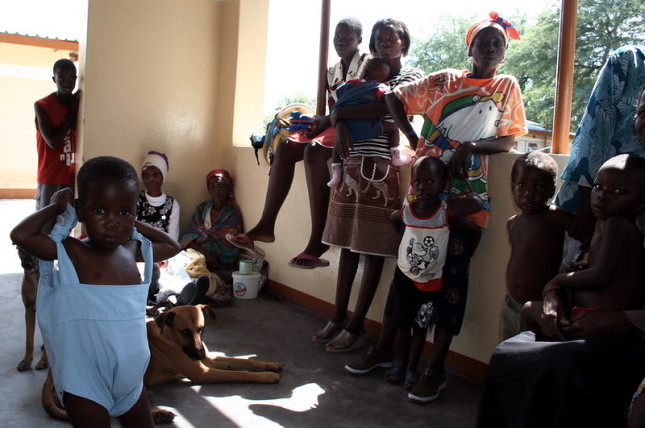
The Western Sahel region—a cluster of arid, low-income countries stretching from Senegal, on Africa’s Atlantic coast, inland to Mauritania, Burkina Faso, Mali, Niger, and Chad—is home to the world’s most youthful populations. According to current UN Population Division estimates, about 57 percent of this six-country region’s population is 19 years old or younger. As security conditions deteriorate across the rural Sahel, governments in Europe and North Africa are taking notice of these countries’ demographic status—and for good reasons. Sustained population youthfulness (often called a “youth bulge”) contributes to low levels of educational attainment, joblessness and social immobility, and ultimately to rapid population growth, which tends to drive declines in per-capita availability of freshwater and other critical natural resources: factors that are associated with the risk of persistent violent conflict and represent powerful push factors for migration.
-
Intense 2019 Amazon Fire Season May Become Dangerous Template for 2020
›
The Amazon endured the most intense fire season in almost a decade in August 2019. On August 19, smoke from the faraway fires blackened the skies over Sao Paulo. By the next day, the hashtag “#PrayforAmazonia” was sweeping across Twitter. The social media outcry brought world attention to the already dire scientific warnings, and world leaders offered aid and pressured Brazilian President Jair Bolsonaro to take action.
-
U.S. Representative Lauren Underwood on U.S. Maternal Health and Policy Solutions
›
“This is a unique moment—a crisis that has demanded action for decades and is now getting the attention it deserves,” said U.S. Representative Lauren Underwood (D-IL-14) at a recent event on maternal health and disparities hosted at George Washington University’s Milken Institute School of Public Health. The United States has the highest maternal mortality rate among high-income countries and for every maternal death, there are 70 “near-misses.” It is important to take a “life-course” approach to address this issue from a policy perspective, said Underwood.
-
It’s Time We Think Beyond “Threat Multiplier” to Address Climate and Security
› If you have even a passing familiarity with the climate and security literature, you undoubtedly have come across the phrase “threat multiplier.” The phrase conveys the idea that climate change intersects with other factors to contribute to security problems. It’s used as short-hand to avoid the charge of environmental determinism, that climate change somehow on its own causes negative security outcomes.
If you have even a passing familiarity with the climate and security literature, you undoubtedly have come across the phrase “threat multiplier.” The phrase conveys the idea that climate change intersects with other factors to contribute to security problems. It’s used as short-hand to avoid the charge of environmental determinism, that climate change somehow on its own causes negative security outcomes.The 2007 CNA Military Advisory Board (MAB) report on climate security introduced this formulation and, at the time, it served the purpose of recognizing that there is a link between climate change and security. But research on climate security has progressed and so must our framing of the risks and needed interventions.
-
Where Do the Plastic Miners Go When the “Mine” Disappears?
›
Usually after dinner, Mr. Ma would take off his shirt, shut the door, and begin work making plastic pellets from scrap. But tonight, he sits in his darkened yard staring at two SUV-sized plastic processing machines and a bundle of colorful scrap plastic. No lights are on, no machines grind, and no familiar theme song of CCTV-1 plays in the background. Walking through other villages in Wen’an County, more men meander around their yards filled with the same idle processing machines and mini-mountains of scrap plastic. Most have never studied English, but they are fluent in the language of plastics, sprinkling words like ABS, PP, and PVC into their conversations. They are the owners of small plastic scrap recycling workshops that were once booming—but are now silent.
-
The Environmental Dimensions of Sustainable Recovery: Q&A with Ken Conca and Anita van Breda (Report Launch)
›
Recognizing the need to address environmental challenges in the wake of war and disaster, American University’s School of International Service and World Wildlife Fund (WWF) joined together to launch the project “Environmental Dimensions of Sustainable Recovery: Learning from Post-Conflict and Disaster Response Experience.” As representatives of a leading conservation NGO (World Wildlife Fund) and a professional graduate school with extensive expertise in environment, development, and conflict resolution (American University’s School of International Service), Anita van Breda and Ken Conca’s partnership helped to conduct a truly cross-organizational, cross-perspective exchange and familiarized them with the challenges and opportunities that occur when working across sectors and organizational cultures.
-
Starting at the Top: Environmental Security in the Himalayas
› As an inhabitant of the Himalayan region of Nepal, where 8 of the 10 highest peaks of the world are situated, I am experiencing first hand several environmental stresses and insecurities. Many of the high mountains I can see from my village, once covered in snow, are turning black. Neighboring areas are experiencing massive out-migration and demographic changes. Consequently, agriculture in the region is facing an unprecedented crisis.
As an inhabitant of the Himalayan region of Nepal, where 8 of the 10 highest peaks of the world are situated, I am experiencing first hand several environmental stresses and insecurities. Many of the high mountains I can see from my village, once covered in snow, are turning black. Neighboring areas are experiencing massive out-migration and demographic changes. Consequently, agriculture in the region is facing an unprecedented crisis.Droughts, irregular rainfall and erratic floods, landslides and mudslides, forest fires, pollution of our land and water, and energy insecurity are frequently observed in Nepal. River systems born out of the Himalayas are shrinking. Erratic climate behavior is heavily affecting the flora and fauna and contributing to biodiversity loss.
Showing posts from category *Main.


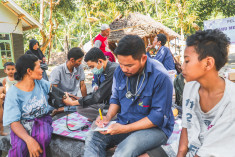 As disasters have changed over the years, so must the personnel who manage these crises.
As disasters have changed over the years, so must the personnel who manage these crises.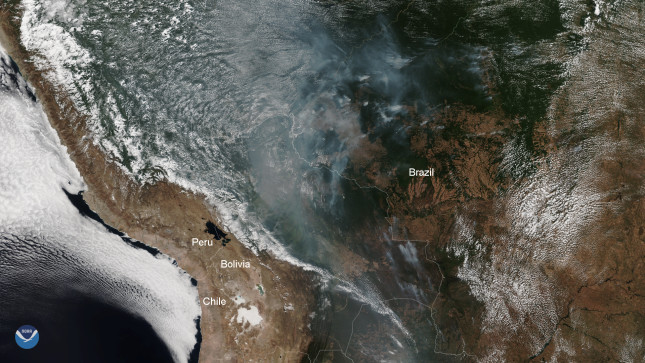
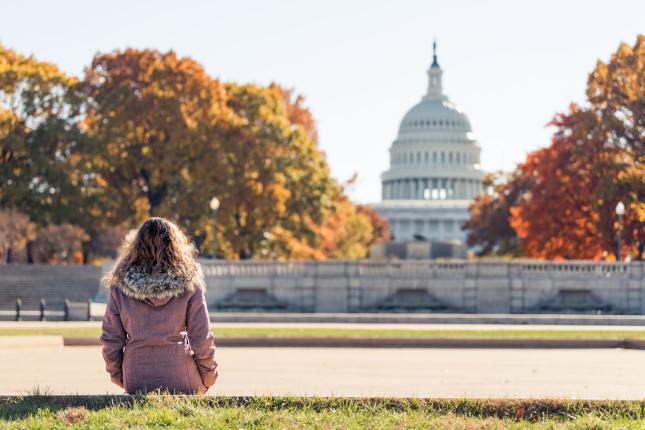
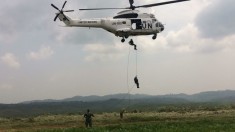 If you have even a passing familiarity with the climate and security literature, you undoubtedly have come across the phrase “
If you have even a passing familiarity with the climate and security literature, you undoubtedly have come across the phrase “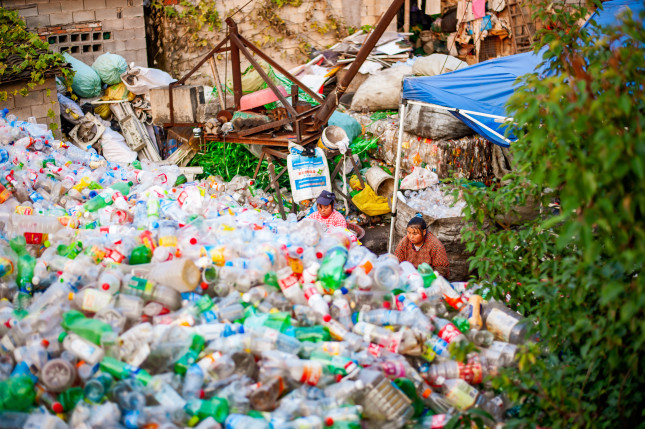
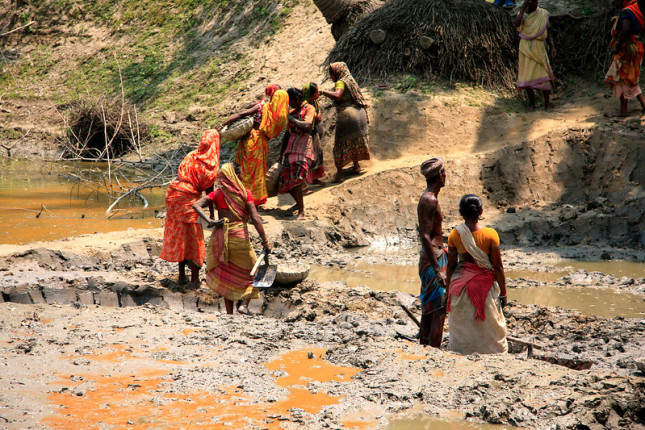
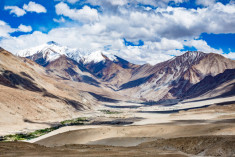 As an inhabitant of the Himalayan region of Nepal, where 8 of the 10 highest peaks of the world are situated, I am experiencing first hand several
As an inhabitant of the Himalayan region of Nepal, where 8 of the 10 highest peaks of the world are situated, I am experiencing first hand several 

